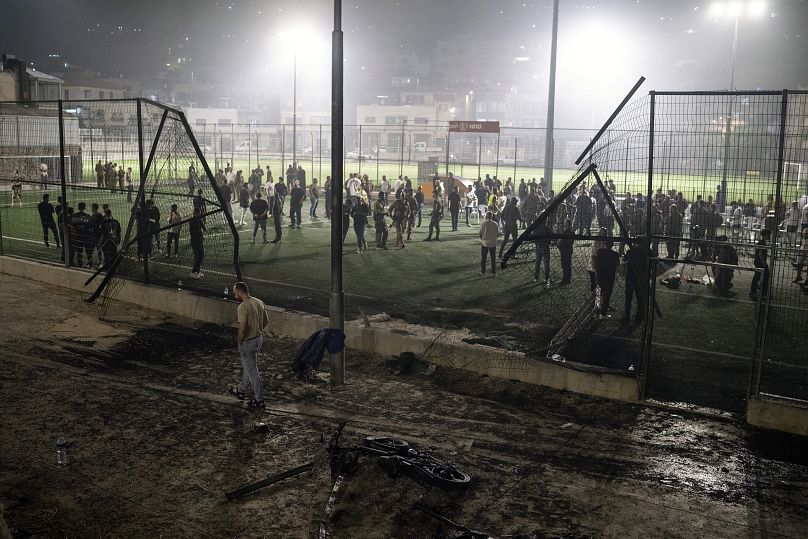Israel said its intelligence showed that the Lebanese group Hezbollah, which like Hamas is backed by Israel’s archenemy Iran, was responsible for the strike and promised a retaliation.
Thousands of mourners have attended the funerals for 11 of the 12 youngsters killed in a rocket strike from Lebanon that struck a football field in the Israeli-controlled Golan Heights on Saturday.
The Israeli military said the attack was the deadliest on civilians in Israel since the war with Hamas started last October.
Israel said its intelligence showed that the Lebanese group Hezbollah, which like Hamas is backed by Israel's archenemy Iran, was responsible for the strike and promised a retaliation.
"Hezbollah, Iran's proxy in the region, will not be exonerated for this event, even with its absurd denials. They fired, they will bear the price and they will pay a heavy price for their actions," said Israel's defence minister Yoav Gallant.
Israeli Prime Minister Benjamin Netanyahu also said Hezbollah would pay a "heavy price" for the strike as he cut short a trip to the United States to return to Israel to chair an emergency security cabinet meeting.
It authorised Netanyahu's government to decide on the 'manner and timing' of the military response.
Overnight, the Israeli military said it struck a number of targets inside Lebanon, though their intensity was similar to months of cross-border fighting. Hezbollah also said it carried out strikes on Israel although there were no immediate reports of casualties.
In a rare move on Saturday, Hezbollah rushed to deny any involvement in Saturday's strike in Majdal Shams, which has stoked fears of starting a broader regional war in the Middle East.
Speaking in Tokyo, US Secretary of State Antony Blinken said there was "no justification for terrorism" but cautioned against escalation.
"I emphasise its (Israel's) right to defend its citizens and our determination to make sure that they're able to do that. But we also don't want to see the conflict escalate. We don't want to see it spread. That has been one of our goals from day one," he said.
And Lebanon's Foreign Minister Abdallah Bou Habib said on Sunday that the government had asked Washington to urge restraint from Israel, in a bid to calm the situation.
That's after the US government reportedly sent a message to Hezbollah via Beirut to show restraint as well.
Hezbollah began firing rockets at Israel the day after the Hamas incursion into Israel on October 7 and Israel has responded by targeting what it says is Hezbollah military infrastructure with airstrikes and drones.
Most of the attacks have been confined to the area on either side of the border, though Israel has also assassinated Hezbollah and Hamas leadership farther north.
Tens of thousands of people on both sides of the border have evacuated the area.
Since early October, Israeli airstrikes in Lebanon have killed more than 500 people, mostly Hezbollah members, but also around 90 civilians. On the Israeli side, 22 soldiers and 24 civilians have been killed.












